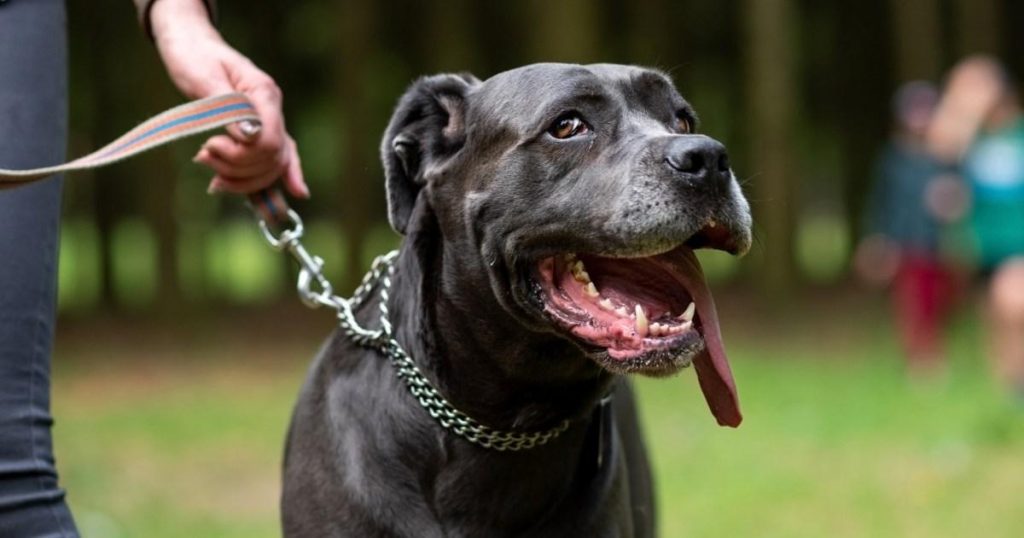The cane corso, a powerful Italian mastiff breed historically employed as a guard dog, is experiencing a surge in popularity, becoming the latest status symbol for some pet owners. Weighing up to 50kg, these formidable dogs are attracting attention from celebrities like Love Island’s Jack Fincham and footballer Marcus Rashford, further fueling their rise in prominence. This growing trend is potentially linked to the recent UK ban on XL bullies, as some individuals seeking a similarly imposing breed may be turning to the cane corso as an alternative. Although the cane corso is legal in the UK and not subject to the same restrictions, concerns are arising about the potential consequences of its increasing presence. Canine behavior specialists report a noticeable increase in encounters with the breed, describing them as akin to “XL bullies on steroids.” The lack of official registration and tracking of cane corsos makes it difficult to quantify their numbers, but anecdotal evidence suggests a significant rise.
The surge in cane corso ownership raises concerns about the potential for misuse and the implications for public safety. Experts warn that the breed’s power and protective instincts, while valuable in responsible hands, can be dangerous if the dogs are not properly trained and socialized. The recent ban on XL bullies has inadvertently created a void in the market for those seeking powerful dogs, and the cane corso appears to be filling that gap. This shift raises the specter of history repeating itself, mirroring the pattern seen with pit bull terriers. When pit bulls were banned, some individuals sought out even more dangerous alternatives, leading to the emergence of the XL bully. The concern is that banning the cane corso, should it become problematic, might simply push people towards yet another, potentially more dangerous breed.
The debate surrounding the cane corso highlights the complexities of breed-specific legislation and the importance of responsible ownership. While some argue that certain breeds are inherently dangerous, others emphasize that a dog’s behavior is primarily shaped by its upbringing, training, and socialization. The Kennel Club, for instance, stresses that any dog, regardless of breed, can be a wonderful companion if raised and trained responsibly. However, the organization also acknowledges that larger, powerful breeds can be attractive to individuals with malicious intent, who may exploit their strength for illicit purposes. The challenge lies in finding a balance between protecting public safety and avoiding blanket breed bans that may not effectively address the root causes of dog aggression.
Responsible breeders and trainers play a crucial role in mitigating the potential risks associated with powerful breeds like the cane corso. Reputable breeders carefully screen potential owners to ensure they have the experience and commitment required to handle these demanding dogs. Thorough socialization and consistent training are essential to shaping a cane corso’s temperament and ensuring they become well-adjusted members of society. However, the increasing demand for the breed has also led to a rise in irresponsible breeding practices, with some breeders prioritizing profit over the welfare of the animals and the safety of the public. Puppies sold at suspiciously low prices or without proper health and temperament checks may be more likely to exhibit behavioral problems, further exacerbating the risks associated with the breed.
Recent incidents involving cane corsos have brought the breed into the media spotlight and fueled concerns about their potential for aggression. The case of Jack Fincham, charged with allowing his out-of-control cane corso to bite someone, highlights the importance of responsible ownership and the potential consequences of failing to control a powerful dog. Another tragic incident involved a cane corso killing its owner’s brother, underscoring the devastating consequences that can arise when these dogs are not properly managed. These incidents, while isolated, contribute to the public perception of the breed and underscore the need for responsible breeding practices, thorough training, and careful owner selection.
The future of the cane corso in the UK remains uncertain. As its popularity continues to grow, so too will the scrutiny surrounding the breed. The challenge lies in finding a way to ensure the safety of the public while also respecting the rights of responsible owners who appreciate the breed’s unique qualities. Education and awareness are crucial to promoting responsible ownership and dispelling misconceptions about the cane corso. By focusing on responsible breeding practices, comprehensive training, and careful owner selection, it may be possible to mitigate the risks associated with the breed and prevent further tragic incidents. The key is to prioritize the welfare of both the dogs and the community, working towards a future where cane corsos can coexist safely and harmoniously alongside humans.


